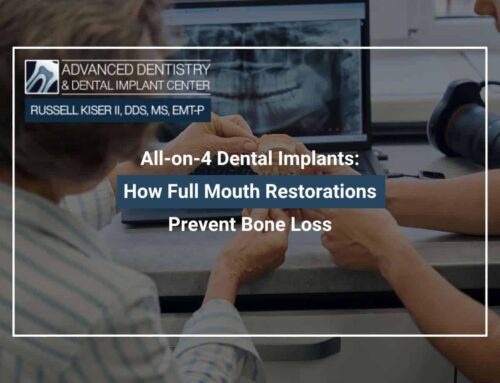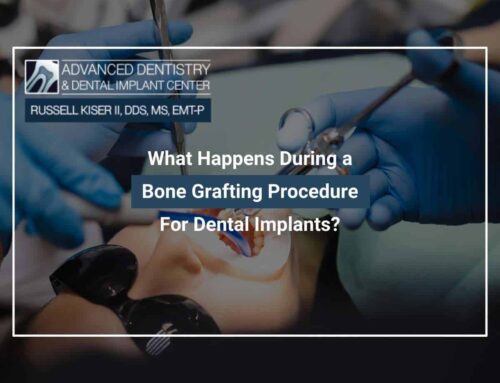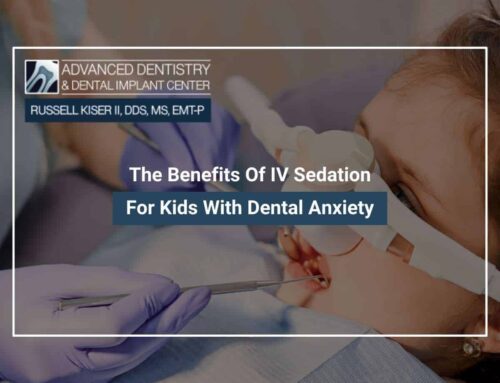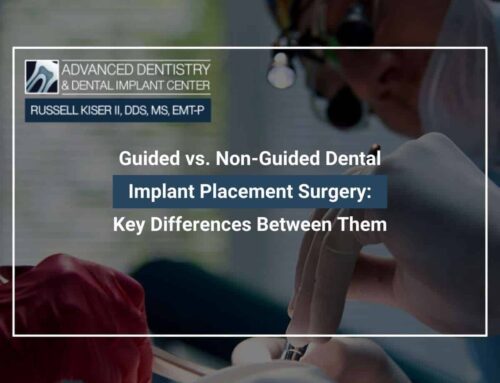Top Reasons Seniors Should Choose Dental Implants Over Dentures
Dental implants have become a valuable solution for seniors who face tooth loss. This option can significantly improve daily life by restoring essential functions like eating, speaking, and smiling. However, some seniors may be unsure if they’re suitable candidates for dental implants due to age-related health concerns.
This article will explore how dental implants can benefit seniors, the specific considerations that come with age, and how to determine if this option is right for them.
Why Dental Implants Are The Best Option For Seniors
Dental implants are an effective, long-lasting solution that offers more stability and functionality than traditional dentures. While dentures have been the go-to for tooth replacement for years, they often come with certain inconveniences.
For example, they may slip, cause discomfort, and require frequent adjustments as the shape of the mouth changes over time. In contrast, dental implants offer a stable, permanent solution, as they’re designed to fuse with the jawbone, maintaining the natural structure of the face and preventing the bone loss often associated with tooth loss.
For seniors, this can translate into an improved quality of life. Dental implants allow seniors to eat a wider variety of foods, speak clearly, and smile without hesitation. Additionally, dental implants help preserve jawbone density, which is essential for maintaining overall oral health and facial structure.
The Process Of Getting Dental Implants
Understanding the implant procedure can help seniors feel more comfortable with this treatment option. The dental implant process begins with an initial consultation to assess the patient’s oral health and determine if they are a suitable candidate. This involves taking X-rays and possibly a CT scan to evaluate bone density, which is essential for a successful implant.
Once cleared for surgery, the next step involves placing a small titanium post into the jawbone. This post will act as a root for the artificial tooth. Following this, a healing period is necessary to allow the titanium post to fuse naturally with the bone in a process called osseointegration.
After the jaw has healed and the implant is securely in place, the dentist attaches a custom-made crown to the post. For those missing multiple teeth, techniques such as the All-on-4 method (where four implants are used to support a full arch) can provide a more efficient solution without the need for individual implants for each missing tooth.
Addressing Age-Related Health Concerns For Successful Dental Implants
As people age, they may face additional health conditions that can impact the success and healing of dental implants. Some common concerns among seniors include lower bone density, cardiovascular disease, diabetes, and autoimmune conditions.
For instance, reduced bone density is particularly relevant, as the jawbone must be strong enough to support the implant. In cases where the bone is not dense enough, a bone graft might be necessary. This procedure involves transplanting bone material to strengthen the jawbone, creating a stable foundation for the implant.
Certain medications can also affect the healing process and increase risks during surgery. Blood thinners, commonly prescribed for cardiovascular issues, may increase the risk of bleeding. Diabetic patients also need to carefully manage their condition, as elevated blood sugar levels can hinder healing and increase the risk of infection.
Despite these challenges, many seniors with these conditions have successfully received dental implants after a thorough evaluation and appropriate medical oversight.
Risks & Complications To Consider
While the success rate for dental implants remains high, at around 97%, seniors need to be aware of potential risks. For example, there is a slight chance of complications, such as damage to surrounding teeth or nerves, especially during the implant placement process.
Conditions like peri-implantitis (an infection that affects the tissues around the implant) can pose risks if proper oral hygiene is not maintained. Peri-implantitis may lead to symptoms such as redness, swelling, pain, and even implant failure in severe cases.
Smoking and a history of gum disease are also significant factors that can affect implant success. Both conditions can impact the jaw’s ability to heal and increase the likelihood of infection. Dental implant specialists will often assess these factors during the initial evaluation and may suggest lifestyle changes or additional treatments to improve the chances of a successful implant.
Are Dental Implants a Viable Option for Seniors?
The suitability of dental implants largely depends on individual health rather than age alone. While some older adults may worry that they’re “too old” for implants, it’s essential to remember that age itself is not a restriction.
Many seniors in their 80s and even 90s have successfully received dental implants, provided their overall health allows for it. Factors like good bone density, a healthy immune system, and well-managed chronic conditions can increase the likelihood of a positive outcome.
For those living in Mansfield, OH, consulting with a dental implant expert can provide a clearer picture of individual suitability. Dentists trained in treating older patients can offer tailored guidance, discuss the benefits and risks, and help seniors make informed decisions.
How Seniors Can Maintain Dental Implants For Long-Term Success
One of the advantages of dental implants over other tooth replacement options is their durability. However, proper care is essential to ensure they last a lifetime. This means maintaining good oral hygiene by brushing and flossing regularly, as well as attending routine dental check-ups.
Seniors should also be mindful of any signs of implant issues, such as unusual pain or swelling, and report them to their dentist promptly.
Since seniors are at higher risk for conditions like gum disease, regular visits to a local family dentist can help monitor and maintain gum health, which is crucial for implant longevity. Periodontal cleanings and exams may be recommended more frequently for seniors with implants to ensure that any potential issues are addressed early on.
Why Seniors Should Consider Dental Implants In Kiser Dental
Dental implants offer a practical solution that can restore confidence and improve the quality of life for seniors facing tooth loss. Unlike dentures, which may require adjustments over time, implants provide a stable and permanent option that supports a healthier mouth and facial structure. This can lead to a more comfortable and fulfilling lifestyle, as seniors are able to eat, speak, and socialize without worry.
If you or a loved one is considering dental implants, it’s essential to consult with a qualified specialist. Mansfield dental implant specialists at Kiser’s office provide personalized care and advanced expertise to ensure seniors receive the best possible treatment for their needs. Contact us today to learn how dental implants could benefit you and restore your smile for years to come.
Advanced Dentistry & Dental Implant Center
1221 S Trimble Rd Suite A1,
Mansfield, OH 44907
Tel: (419) 756-2880
Email: [email protected]











